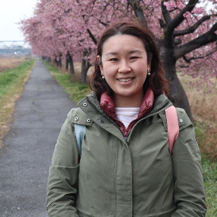How to Speed Up Your Permanent Residency Application in Japan (2024 Update)
How to Speed Up Your
Permanent Residency Application
in Japan (2024 Update)

Applying for Permanent Residency (PR) in Japan can be a lengthy and complex process, especially with varying examination periods. If you’re wondering how to speed up the process or what factors influence the timeline, this guide will provide you with the key insights to streamline your application.
How Long Does It Take to Get Permanent Residency in Japan?
As of now, the processing time for Permanent Residency at the Tokyo Immigration Bureau typically ranges from 10 to 15 months, though some applicants receive approval in as little as 5 months. While the official Immigration Bureau website states a standard processing time of 4 months, in reality, stricter screening has led to longer wait times, with 10 to 15 months being the norm due to overtourism and massive VISA application.
Why Does the Examination Period Vary?
The PR review process can differ significantly depending on individual circumstances. Factors that may affect the timeline include:
- Applying independently without professional assistance
- Incorrect or incomplete documentation
- Insufficient explanations regarding your qualifications for PR
Additionally, the regional immigration office where you apply and the timing of your submission can impact processing times. It’s important to note that comparing your case to others is not always helpful, as every application is unique.
Case Study: How to Ensure a Faster PR Application Process
The speed of your PR approval largely depends on how well your application meets the requirements. Based on past successful cases, the following factors can help ensure a smoother and faster review process:
- Provide a Clear and Reasonable Explanation
- Submit a detailed Statement of Reasons (理由書) in Japanese that clearly explains how you meet PR requirements.
- Error-Free Documentation
- Ensure all supporting documents are accurate and consistent with your statement.
- Submit Sufficient Supporting Evidence
- Optional documents that provide additional proof of your qualifications can strengthen your application.
By minimizing any potential red flags and providing thorough documentation, you reduce the likelihood of delays during the examination process.
How Immigration Reviews Applications
Because PR offers unrestricted rights to work and reside in Japan, the screening process is thorough. According to internal Immigration Bureau guidelines, applications are classified into the following categories:
- Type A: Immediate approval (PERMIT)
- Type B: Requires strict screening (Difficult to approve)
- Type C: Not eligible for approval (NOT permitting)
- Type D: Additional information required (Reassigned to A, B, or C after submission)
Applicants who meet the criteria without issues are typically classified as Type A and may receive approval faster.
Can You Track Your PR Application Progress?
Unfortunately, the Immigration Bureau does not provide specific details about the progress of your application. They only indicate that your case is “currently under review” and do not give estimated timelines for completion. While some applicants may become frustrated with the wait and attempt to contact the bureau frequently, doing so will not expedite the process. In fact, it can be counterproductive.
What Happens if You’re Asked for Additional Documents?
If your PR application requires further clarification, you will receive a “SHIRYO TEISYUTSU TSUCHI SHO” (資料提出通知書), which is an official request for additional documents. This request may come shortly after your initial submission or months later, depending on the complexity of your case.
How to Speed Up the PR Application Process
- Ensure Completeness from the Start
- The most effective way to speed up your PR application is to submit a complete and accurate application from the beginning. This includes the correct forms, a well-prepared statement of reasons, and all necessary supporting documents.
- Work with a Professional
- If your case involves complexities such as irregular employment history or international taxation issues, working with an experienced immigration lawyer or administrative scrivener can help navigate the process and reduce the risk of errors that cause delays.
Type A:PERMIT
Type B:Strict Screening (Difficult to permittion)
Type C:NOT permitting
Type D:Requires additional information(Then reassigned to A, B, C)
Professional
 Masakazu Murai
Masakazu Murai
18 years experience in Investment Banking at Mitsubishi UFJ Morgan Stanley(JV, MUFG Bank and Morgan Stanley). He had provided financial advisory more than 500 entrepreneurs and senior management.
During his tenure, he worked as an employee union executive committee member in promoting diversity, including the active participation of foreigners and women in the office, and engaged in activities to improve the working environment. He specializes in financial consulting and VISA/PR consulting.
Gyoseishoshi Immigration Lawyer
CMA(Japanese financial analyst license)
CFP (Certified Financial Planner)
Master of Business Administration in Entrepreneurship











